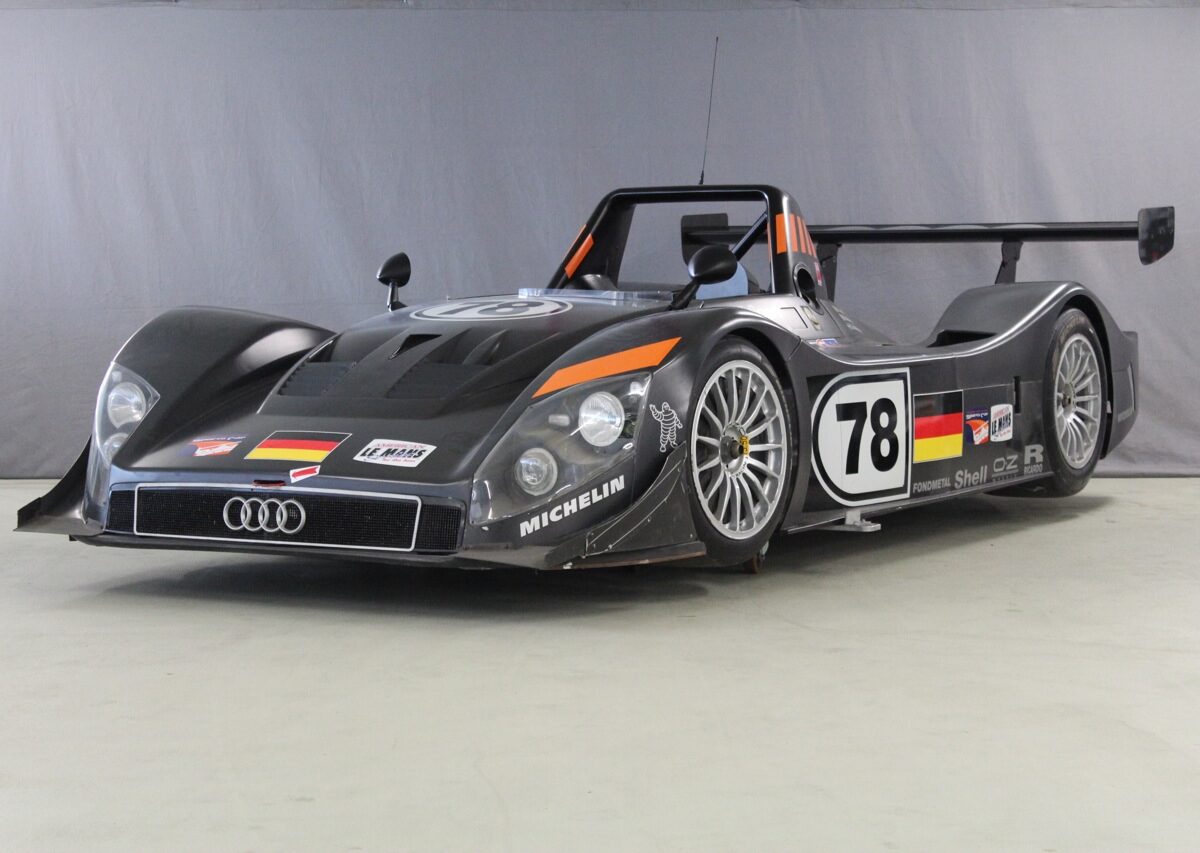Audi R8R (1999)
Details
- Cylinders:
- 8
- Engine CC:
- 3600
Motorsport Icons

Several special features characterize this exhibit. In 1999, Audi took up the challenge of the Le Mans 24 Hour race for the first time. The brand thus created its first sports prototype, having previously competed in rallies and on the circuit with production car-based vehicle concepts. Following concept studies, Dr. Wolfgang Ullrich’s motorsport department in Ingolstadt concentrated on building an open sports prototype from 1997 onwards. It was not until the second half of 1998 that the engineers in Great Britain at the newly acquired Audi subsidiary rtn (racing technology norfolk) started work on a second vehicle concept for Le Mans with a closed coupé. Audi assigned different names to differentiate between them. The open-top model shown here was called R8R (the last R stands for Roadster).
The high competitive pressure and the rapidly increasing learning curve of Audi Sport at the start of the project led the developers to very short innovation cycles. An initial version of the R8R completed its first tests in 1998, but never raced. The R8R exhibited here already represents a second evolutionary stage with a significantly aerodynamically optimized body. In the hands of Frank Biela/Perry McCarthy/Emanuele Pirro, the number 78 race car entered by Audi Sport Team Joest finished fifth in the Sebring 12 Hours on March 20, 1999. He finished two positions behind the identical sister model with the starting number 77 of Michele Alboreto/Dindo Capello/Stefan Johansson.
It remained the only use of this evolution version. Just a few weeks later, a third, visually significantly modified evolutionary stage of the R8R competed in the Le Mans 24 Hours on June 12 and 13, 1999. It also achieved a third place.
Technical Data
Engine: V8 cylinder light alloy engine, twin turbo
Engine capacity: 3,600 ccm
Output: more than 550 hp (404 kW) according to the regulations
Length/Width/Height: 4,650/2,000/1,080 mm
Kerb weight: 900 kg
Building period: 1999
Total number of units: 2
